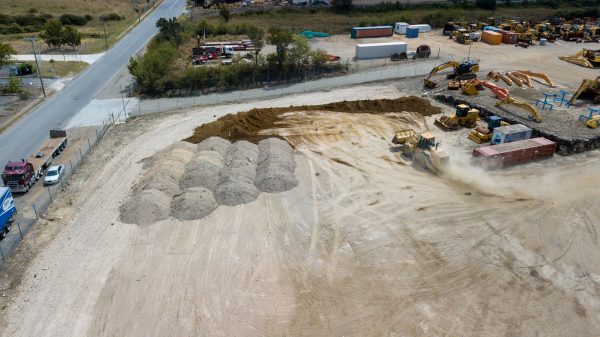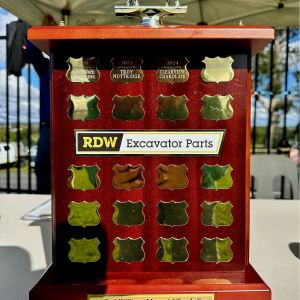
Construction and other earthmoving associated industries are facing some headwinds at present. It’s easy to simply complain about it, but the ones who will outperform others are those who live by the old saying “when the going gets tough, the tough get going”. There are some obvious things that all businesses can do, but perhaps some out of the box thinking might work too?
The first thing in developing a plan is to take stock of where the business is at now: what does the future outlook tell you, and when and how do you think it will pick up? What Assets do you have in the business (people as well as things like plant & equipment)? And which Assets do you need to keep through thick and thin?
If you must make structural changes to your business, it gives you much more flexibility if you do this early than when your back is against the wall. Employee costs are often seen as one of the first things to adjust but exercise some caution because you’ll need experienced and knowledgeable people who know how your business works in the eventual upturn. Many businesses use times like this to clean out some dead wood, but when you have to cut further than that, consider some other avenues. You can for instance temporarily reduce hours (even four 10 hour days per week might appeal to employees and work for both parties) or expand their job skills to take on other productive duties.
Monitoring your cash flow and balance sheet at times such as this is critical. Have a good cleanout – turn underutilised equipment and other items into cash as you can often hire or buy a replacement when needed. If the income from the item is likely to be less than the holding costs, flick it.
The above is standard thinking. When there is desperation, we see companies quote below cost to keep money coming in the door. All that really does is to kick the can down the road, hoping times will improve. Meanwhile, the noose (ability to meet finance commitments) just got tighter.
Thinking outside the box is hard, and often means questioning the status quo. Here are some ideas that might help you through, without having to reduce your fleet or business:
Reduce waste by recycling – we have customers who have managed to turn a waste product that they had to pay to dump, into something they can make money on. The ALLU Transformer is now being used in many industries to do just that. On building sites and pipeline projects for instance, ALLU’s are processing what was once 100% land fill and now allowing the user to use spoil materials to produce compactible fill (in some instances saving transport costs, dump fee’s and replaces the need to buy in clean fill by up to 60%).
Get job ready – make sure your machinery is serviced and ready to go to work ASAP. Very often, people want work to commence immediately, and won’t wait for you to get it ready.
 Maximise your investment whilst minimising your outlay – amongst the largest costs when running machinery are depreciation and capital costs. By buying good used machinery instead of new, you can reduce both, which means your operating cost per hour comes down. This improves your competitiveness and profitability.
Maximise your investment whilst minimising your outlay – amongst the largest costs when running machinery are depreciation and capital costs. By buying good used machinery instead of new, you can reduce both, which means your operating cost per hour comes down. This improves your competitiveness and profitability.
Get better value – when you need to buy any items for your business, make sure you are getting the best value for money. For instance, when buying parts for your machine, new replacement parts can often save you substantial amounts of money compared to genuine new.
Flexible fleet – make sure your machine is as flexible as possible – do you have all the attachments so you can do a multitude of different types of jobs? Maybe by having an extra attachment for a few thousand dollars means you can get a job that gets your high value machine back into an income producing job.
Diversify your customer base – reduce your reliance on a handful of customers, perhaps by branching out into related fields.
Partner up – to accelerate the diversification, it can be very helpful to partner up with people in related applications rather than try to do everything yourself. For instance, if your business is excavation and you’re very good at it, but to grow your business you need more cartage capacity but are reluctant to pour money into more equipment – why not partner on a job with someone who’s main business is transport?
Revolutionise – we have customers who are buying their second ALLU bucket already. After dipping their toes in the water and seeing the potential, customers in industries as diverse as organic mulching and waste recycling are reaping the benefits by processing and mixing manure etc into usable soils and fertilisers. We have concrete companies screening concrete waste and substituting back into the production process. Customers who hire in screening plants are able to transform the incoming product in one simple step, rather than stock pile and handle the product multiple times. Can you revolutionise your processes to achieve greater profitability?
Find a competitive advantage – I have holidayed at the same place for many years, and there has always been 2 café’s next to each other. They were solid businesses, but not exceptional, always neck and neck customer wise. One of the businesses had a change of ownership and refreshed the premises. But the biggest transformation was the renewed customer service spirit – friendly service with a smile. With queues out the door, this simple differentiator made them stand out from the crowd and draw trade to the area that never existed previously – at no cost. If I listen to friends trying to get people in the construction industry to do something for them, sadly many times the bar is set so low that they’ll go with whomever called them back and/or turned up to do the job. And they’ll refer them to friends for simple things like tidying up at the end of the job or feeling like they received value for money. Many a successful business has been built around simply being easy to do business with.
Much like the epic book “Who Moved my cheese” highlighting the importance of adapting to a changing environment, in times like this, businesses need to adapt and change. Never has there been a better time to work on the business rather than just in the business.
![]()
Bushfires
Our thoughts and prayers are with all the people dealing with bush fires, and a huge thank you to our fire fighters and other emergency services for your tremendous efforts.
There’s not much positive to come out of this, but let’s hope that this is a circuit breaker that will restore sanity to our environmental debate and allow land owners to once again manage the maintenance of their properties (it’s in their own interest to manage the land sustainably) and clear around houses. Out of control fires are now devasting the landscape and killing animals, so hopefully we’ll get some focus back on preventative hazard reduction measures and maintenance of bushland and fire breaks for the future to reduce the man-made contribution to this catastrophe. The indigenous population managed bushland like this for centuries, so let’s get back to using proven environmental control methods.
As always, onwards and upwards!
Fred Carlsson
General Manager



